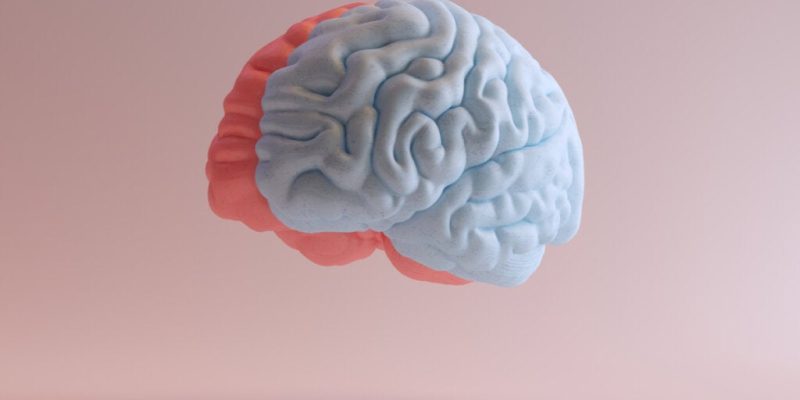To learn what you want to learn, you need more than just a high IQ. Indeed, Albert Einstein became one of the most exceptional figures for far more than his great intelligence. It’s said he only acquired his language skills quite late. In fact, he didn’t begin to speak until he was three.
He was said to be a withdrawn and slow boy. He loved making wood creations with a saw, was a rebellious student, and barely finished his academic training. Furthermore, the job he got as a technical assistant at the Swiss patent office in Bern was partly because of his family.
So how did the father of relativity manage to publish such exceptional theories and countless scientific articles? What techniques and mental approaches did Einstein apply in his daily life? The truth is that he made use of a series of strategies that psychology has been studying for some time.
“I have no special talent. I am only passionately curious.”
-Albert Einstein-
To learn what you want, follow the advice of Albert Einstein
As well as Albert Einstein’s theoretical legacy, are his personal archives. Among them are the letters he wrote to his children. Some of these letters can be found in the 2008 book, entitled Posterity: Letters of Great Americans to Their Children.
In 1915, Einstein was immersed in his work in a desolate Berlin after the war. Meanwhile, his wife Mileva -whom he would divorce shortly after- and their two sons, Hans Albert and Eduard ‘Tete’, resided in a safer Vienna. Einstein had just developed the theory of relativity, which would lead to his success and world fame.
Happy about his achievements, he was inspired to write to his eldest son in response to a letter that the boy himself had sent him. In these lines, we discover a series of extremely clear tips aimed at motivating his son’s academic development.
My dear Albert
Yesterday I received your dear letter and was very happy with it. I was already afraid that you wouldn’t write to me at all anymore. You told me when I was in Zurich, that it is awkward for you when I come to Zurich. Therefore I think it is better if we get together in a different place, where nobody will interfere with our comfort. I will in any case urge that each year we spend a whole month together, so that you see that you have a father who is fond of you and who loves you. You can also learn many good and beautiful things from me, something another cannot easily offer you. What I have achieved through such a lot of strenuous work shall not only be there for strangers, but especially for my own boys. These days I have completed one of the most beautiful works of my life, when you are older I will tell you all about it.I am very pleased that you find joy with the piano. This and carpentry are in my opinion for your age the best pursuits, better even than school. Because those are things which fit a young man such as you very well. Mainly play the things on the piano that please you, even if the teacher does not assign those. That is the way to learn the most, that when you are doing something with such enjoyment that you don’t notice that the time passes. I am sometimes so wrapped up in my work that I forget about the noon meal…
Be with Tete kissed by your
Papa.Regards to Mama”.
Curiosity and free learning
Possessing high intellectual skills is useless if the mind isn’t also curious and passionate about learning. Imagination, as Einstein himself said, is intelligence having fun. For this reason, he advised his son to play the musical pieces that he wanted, even if his teacher didn’t assign them for him to play.
As we mentioned earlier, the father of the theory of relativity never fitted into his school environment. The rigid, structured, and guided teaching by some of his teachers wasn’t in tune with his needs. He preferred freer and more autonomous learning, guided by his highly creative approach; the one that made him immerse himself in the universe of mathematics from a very early age.
- To learn what you want, you must make use of an open and curious mindset. Use the kind of mental approach that doesn’t only take in superficial information, but allows itself to go further. Be autonomous in your learning.

Flow: the art of enjoying the task
As Einstein said, the best way to learn is by enjoying your learning so much that you don’t notice the time passing. He didn’t know it at the time, but that description, of perceiving that the hours go by while the mind is focused on a task, was defined sometime later within the framework of the flow theory.
In fact, it was the American psychologist, Mihaly Csikszentmihalyi, who described this concept in the 1990s, in his book, Flow: The Psychology of Optimal Experiences. These are states in which your consciousness works at another level, your concentration is greater, and you also experience a terrific sense of harmony and well-being.
Reaching the state of flow doesn’t mean that you only work on tasks that you like or that motivate you. To achieve the highest concentration in the middle of a task, you must also sacrifice certain things. You need to remove any distractions and reduce your stress and anxiety. Indeed, a calm mind is a focused mind.
Thought experiments
Einstein’s passion for carpentry during his childhood and adolescence was due to the pleasure he obtained by imagining and creating the most ingenious pieces. His mind loved to experiment with forms and perspectives, visualizing them, and working with them on that plane. He later applied this technique when developing his theory of relativity, when he delved into gravitational fields.
As you can see, knowledge isn’t acquired only with paper and pencil. Imagining concepts in your mind, experimenting with them, and relating them to your previous learning will also be useful.
While the letter that Einstein wrote to his son was quite brief, it was full of good wishes and helpful advice. With his words, he demonstrated that genuine intelligence is active, curious, imaginative, and, above all, creative.
The post Albert Einstein and the Secret of Learning What You Want to Learn appeared first on Exploring your mind.



















Comments